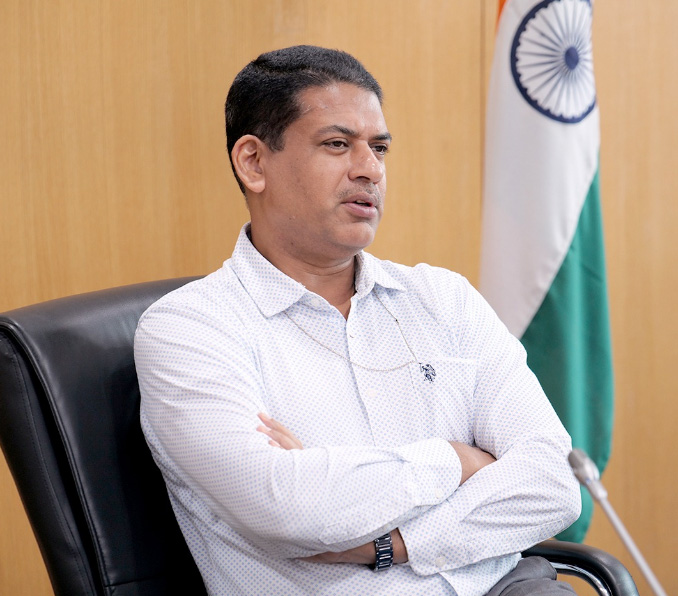New Delhi: In a significant move toward solidifying India’s clean energy goals, the Secretary of the Ministry of New and Renewable Energy (MNRE), Santosh Sarangi, chaired a high-level meeting with officials from the Ministry of Power, NITI Aayog, and the Central Electricity Authority (CEA).
The wide-ranging discussion focused on India’s non-fossil roadmap, with a consensus reached on short-, medium-, and long-term goals for achieving a NetZero future.
The meeting highlighted the dual benefits of renewable energy, emphasizing that it is both an economic and environmental win for the country. Participants acknowledged the falling costs and ease of deployment for renewable energy technologies, underscoring their crucial role in India’s energy transition. The dialogue underscored a collaborative approach to tackling the challenges and opportunities in the renewable sector.
Shri Sarangi said that India has made significant progress in its energy transition, reaching 50% of its installed electricity capacity from non-fossil fuel sources five years ahead of its original 2030 target. This milestone is a key part of India’s commitment to achieving 500 GW of non-fossil capacity by 2030 and a net-zero emissions target by 2070.
National Green Hydrogen Mission: This initiative is a cornerstone of the roadmap, aiming to establish India as a global hub for green hydrogen production, use, and export. The mission includes providing production incentives and developing infrastructure to support a 5 million metric tonne green hydrogen production capacity by 2030.
PM Surya Ghar: Muft Bijli Yojana: This program is designed to promote rooftop solar adoption and has been a major driver of growth in the sector. It aims to make solar energy accessible to a large number of households, fostering decentralized energy generation.
PM KUSUM Scheme: This initiative focuses on expanding clean energy access in the agricultural sector by providing solar-powered pumps and promoting feeder-level solarization.
Skill Development and Manufacturing: The government is actively working on developing a skilled workforce for the renewable energy sector, as well as boosting domestic manufacturing of solar and wind technologies to reduce import dependency and ensure energy security.


